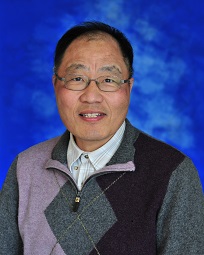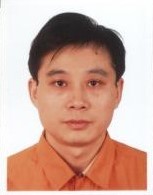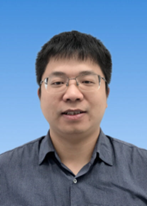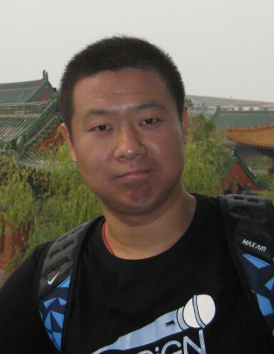
Keynote Speaker I
Prof. Chong-Yung Chi, National Tsing Hua University, Taiwan, China
(IEEE Life Fellow, AAIA & AIIA Fellows)
Chong-Yung Chi (IEEE Life Fellow, AAIA & AIIA Fellows) received the B.S. degree from Tatung Institute of Technology, Taipei, Taiwan in 1975, the M.S. degree from National Taiwan University, Taipei, Taiwan in 1977, and the Ph.D. degree from the University of Southern California, Los Angeles, CA, USA, in 1983, all in electrical engineering. He is currently a Professor of National Tsing Hua University, Hsinchu, Taiwan. He has published more than 240 technical papers (with citations more than 7500 times by Google-Scholar), including more than 90 journal papers (mostly in IEEE TRANSACTIONS ON SIGNAL PROCESSING), more than 140 peer-reviewed conference papers, 3 book chapters, and 2 books, including a textbook, Convex Optimization for Signal Processing and Communications: From Fundamentals to Applications, CRC Press, 2017 (which has been popularly used in a series of invited intensive short courses at 10 top-ranking universities in Mainland China since 2010 before its publication). His current research interests include signal processing for wireless communications, convex analysis and optimization for blind source separation, biomedical and hyperspectral image analysis, graph based learning and signal processing, and data security and privacy protection in machine learning. Dr. Chi received 2018 IEEE Signal Processing Society Best Paper Award, entitled “Outage Constrained Robust Transmit Optimization for Multiuser MISO Downlinks: Tractable Approximations by Conic Optimization,” IEEE Transactions on Signal Processing, vol. 62, no. 21, Nov. 2014. He has been a Technical Program Committee member for many IEEE sponsored and cosponsored workshops, symposiums and conferences on signal processing and wireless communications, including Co-Organizer and General Co-Chairman of 2001 IEEE Workshop on Signal Processing Advances in Wireless Communications (SPAWC). He was an Associate Editor (AE) for four IEEE Journals, including IEEE TRANSACTIONS ON SIGNAL PROCESSING for 9 years (5/2001-4/2006, 1/2012-12/2015), and he was a member of Signal Processing Theory and Methods Technical Committee (SPTM-TC) (2005-2010), a member of Signal Processing for Communications and Networking Technical Committee (SPCOM-TC) (2011-2016), and a member of Sensor Array and Multichannel Technical Committee (SAM-TC) (2013-2018), IEEE Signal Processing Society.

Keynote Speaker II
Prof. Qiu Daowen, Sun Yat-sen University, China
My main research outcomes have been in the following areas. (1) Quantum models of computation. (2) Quantum query algorithms. (3) Quantum cryptograpy and quantum communication. (4) Quantum states distinguishablility and quantum states cloning. (5) Theory of computation based on quantum and lattice-valued logic. (5) The applications of fuzzy and probabilistic automata to discrete event systems, focusing on diagnosability and supervisory control. We have published over 130 papers in peer-review journals, and over 25 conferences papers. More specifically, (1) we have systematically studied a number of different QFA (quantum finite automata) models, and solved the decidability of equivalence and minimization of these QFA models (D. Qiu, L. Li, X. Zou, P. Mateus, J. Gruska, Acta Informatica, 2011, 48 (5-6): 271-290; P. Mateus, D. Qiu, L. Li, Information and Computation, 2012, 218: 36-53;L. Li, D. Qiu, Theoretical Computer Science, 2008, 403(1): 42-51). Therefore, we have answered the problems of how to decide the equivalence of quantum sequential machines proposed by Professor Gudder, and how to decide the equivalence of MM-1QFA proposed by Professor Gruska. In particular, we have answered the problems of how to minimize QFAs proposed by Moore and Crutchfield. We proposed a model of quantum-classical finite automata, named as one-way quantum finite automata together with classical states (D. Qiu, L. Li, P. Mateus, A. Sernadas, Journal of Computer and System Sciences, 2015, 81(2): 359-375). Also, we have studied some properties of 2QFAC, quantum pushdown automata, and quantum Turing machines. (2) We have proved the characterization of all Boolean functions that can be solved by quantum 1-query algorithm. (3) We have studied quantum states discrimination and quantum cloning machines, and we have derived some bounds on unambiguous discrimination and minimum-error discrimination (some bounds are optimal to a certain extent), and some relationships between unambiguous discrimination and minimum-error discrimination have been clarified. Also, we have established a generic machine model of probabilistic cloning and deleting, and proposed a universal probabilistic deleting machine. (4) We have studied quantum teleportation and superdence coding based on different entangled states (W-states). (5) We have studied semi-quantum cryptography and proved that a semi-quantum key distribution protocol is unconditional security. (6) We have discovered some essential connections between quantum logic and models of computation, and we have established residuated lattice-valued automata theory (D. Qiu, Information and Computation, 2004, 190(2): 179-195). (6) We have established a fundamental framework of the supervisory control for fuzzy discrete event systems (FDES) and developed the supervisory control of probabilistic discrete event systems (PDES), using fuzzy automta and probabilistic automata, respectively.

Keynote Speaker III
Prof. Shaojie Qiao, Chengdu University of Information Technology, China
Shaojie Qiao is a Distinguished Young Scholars of Sichuan Province. He is currently a professor with the School of Software Engineering, Chengdu University of Information Technology, Chengdu, China. He is a Ph.D. supervisor. He has participated in several projects supported by the National Natural Science Foundation of China and obtained two Second Prize of Science and Technology Progress in Sichuan Province and two Third Prize of Science and Technology Progress in Sichuan Province. He has authored more than 180 high quality papers, including IEEE Transactions on ITS, TKDE, TNNLS, TCYB, TBD, SMC-Systems, etc. He has obtained some best paper awards and held some International conferences. His research interests include AI-enabled databases, spatio-temporal databases, big data analysis and mining.

Keynote Speaker IV
Prof. Lei Deng, Central South University, China
Lei Deng is a Professor and PhD Supervisor at the School of Computer Science and Engineering, Central South University. He has been honored with the Hunan Distinguished Youth Fund award and serves as the Vice Chairman of the Hunan Provincial Bioinformatics Society. Previously, he conducted postdoctoral research at Columbia University, USA. His research focuses primarily on bioinformatics and AI-driven drug discovery. He has led a key project funded by the National Natural Science Foundation, along with three general projects and one youth project. Professor Deng has authored over 150 papers published in prestigious international journals and conferences such as Nature, Nucleic Acids Research, and ISMB. He has been recognized as one of the top 2% of leading scientists globally by Stanford University and holds eight authorized invention patents. His contributions have earned him a second-place prize in natural sciences awarded by the Ministry of Education. Additionally, he is a member of the Bioinformatics Committee of the China Computer Federation (CCF) and is a member of the Committee for Bioinformatics and Artificial Life under the Chinese Association for Artificial Intelligence (CAAI).

Keynote Speaker V
Prof. Lu Leng, Nanchang Hangkong University, China
LU LENG received his Ph.D degree from Southwest Jiaotong University, Chengdu, P. R. China, in 2012. He performed his postdoctoral research at Yonsei University, Seoul, South Korea, and Nanjing University of Aeronautics and Astronautics, Nanjing, P. R. China. He was a visiting scholar at West Virginia University, USA, and Yonsei University, South Korea. Currently, he is a full professor, the dean of Institute of Computer Vision, the office director of Jiangxi Province Key Laboratory of Image Processing and Pattern Recognition at Nanchang Hangkong University. Prof. Leng has published more than 100 international journal and conference papers, including more than 70 SCI papers and three highly cited papers. He has been granted several scholarships and funding projects, including six projects supported by National Natural Science Foundation of China (NSFC). He serves as a reviewer of more than 100 international journals and conferences. His research interests include computer vision, biometric template protection, biometric recognition, medical image processing, data hiding, etc. Prof. Leng was awarded Jiangxi Youth May-4th Medal, and is an outstanding representative of "Innovation Talent" of Jiangxi Enterprise in "Science and Technology China", "Jiangxi Hundred-Thousand-Ten-thousand Talent Project", "Jiangxi Voyage Project", etc.
